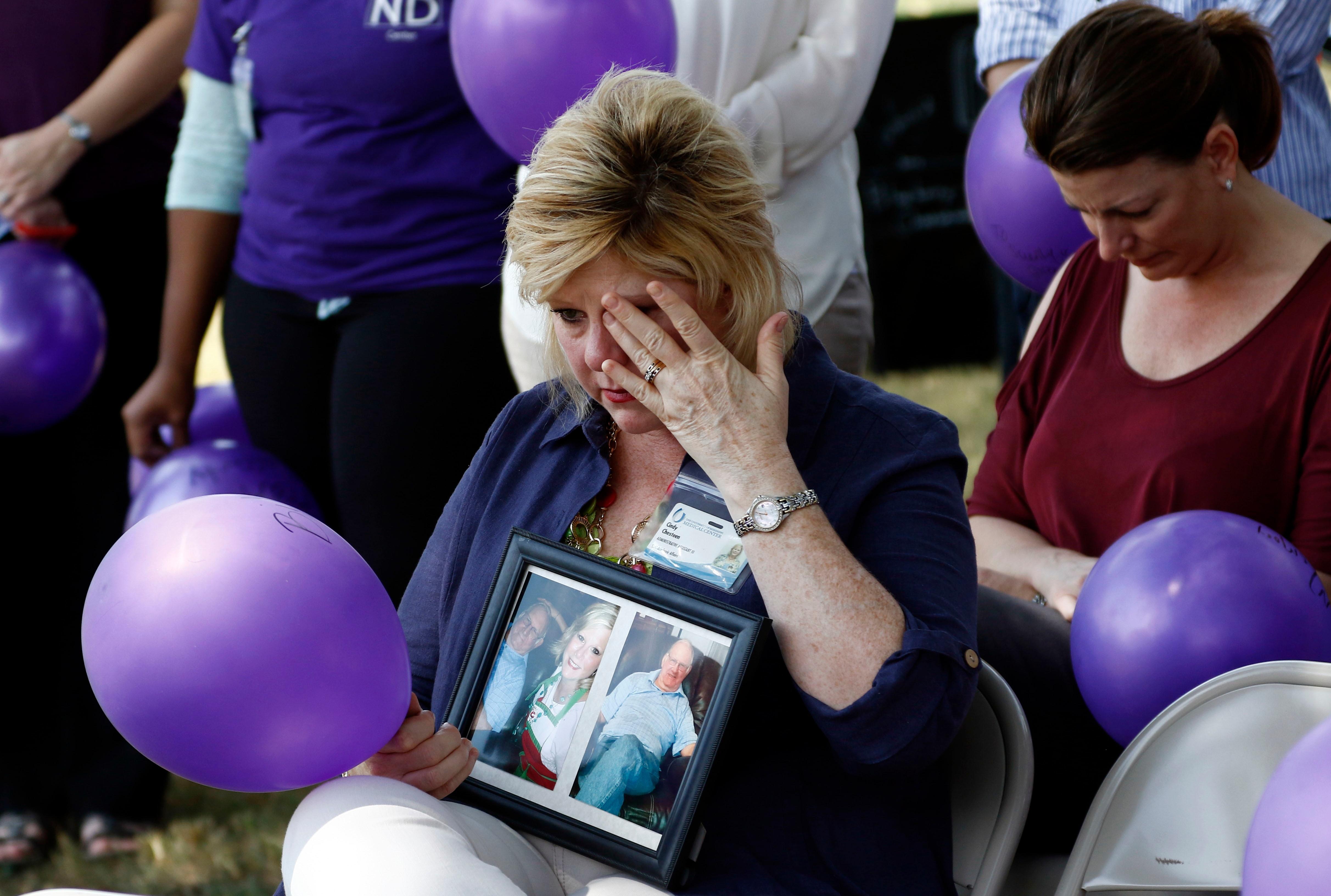Alzheimer’s disease is a brain disorder that progressively destroys memory and thinking skills, and after some time, the ability to carry out simple tasks, according to the National Institute on Aging. It is caused by the buildup of two proteins in the brain and can begin years before symptoms are apparent.
Dr. Kimberly Tarver is the division chief of geriatrics at the University of Mississippi Medical Center.
“The thing that lets me know that someone has Alzheimer's dementia versus some other type of disease is how they clinically present for the most part,” she said. “So these patients will present with sort of a slow onset of memory loss that tends to be short term memory loss or what we would call delayed recall, where their longer term memories are preserved initially, but they are sort of losing the ability to remember what happened today or this week.”
Dr. Tarver says making an Alzheimer’s diagnosis early is essential to the health of the patient, and helps families to gather whatever resources they have.
“Doctors vary quite a bit in their comfort level with making a diagnosis,” she said. “So if you go to the doctor and you say I'm having some trouble with my memory and that sort of just gets glossed over and the doctor doesn't do much about it, find someone who does.”
Kristen White is the program manager for the Mississippi chapter of the Alzheimer’s Association. She says at the onset of the disease, symptoms of Alzheimer patients may be so mild they may not recognize they have it.
“As those symptoms become more and more pronounced, they will have [to] increasingly rely on family members to remind them of things, having some notes around the house, those types of things, and have trouble with words and speaking,” she said. “Then as the disease continues to progress, they will need more assistance with daily living.”
Alzheimer’s affects nearly 13% of adults over the age of 65 in Mississippi. Since the disease is progressive, Alzheimer patients will eventually require the assistance of caregivers. The total value of their unpaid labor is $2.4 million.
“There are several things that we try to encourage loved ones to put in place after a diagnosis, especially when we're looking at power of attorneys and wills and those types of things,” White said. “As the disease progresses, there will get to a point where they're not able to make those decisions.”
There are around 93,000 caregivers in Mississippi.




